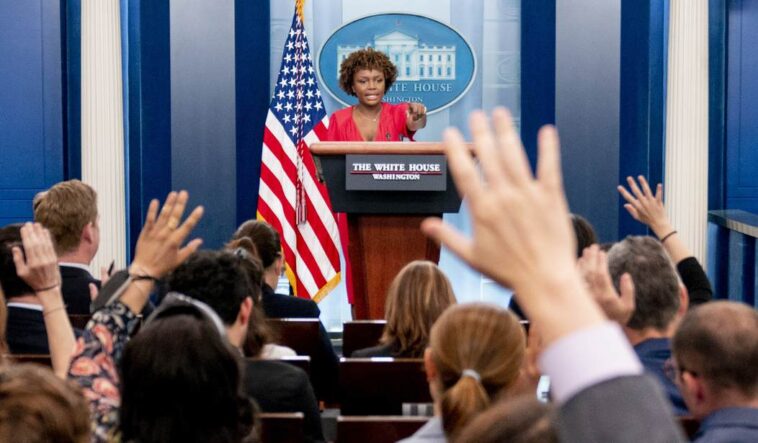There can be no denying that the face of journalism has changed a lot over the last few decades. I remember the Old Man and my Mom watching the Watergate reporting on their big old console television; in those days, television was, of course, limited to the three major networks (and PBS), and entry into the hallowed halls of reporting was as restricted as a medieval trade guild. Print journalism wasn’t much better.
Came the internet! Suddenly, reporting and commentary exploded, and while it’s fair to say that there was and is some nutballery on the interwebs, there is also some solid, factual reporting and deeply insightful commentary on the new alternative media. As evidence, I’d point you to this site and, indeed, all of the Townhall media group.
But Washington Post media reporter Paul Farhi claims an inside track on who is and who is not a “professional” journalist. Nut surprisingly, I have some thoughts.
Washington Post media reporter Paul Farhi is the most recent example of a journalist who sounds like his own colleagues are the “professionals” and the writers without the classic Old Media branding are the “non-pros,” people who don’t have standards.
Farhi began by tweeting: “Someone invented the phrase ‘citizen journalism’ a few years ago to describe amateurs doing the work of pros. Yes, it occasionally works, but probably no more often than “’citizen cop,’ ‘citizen attorney’ or ‘citizen soldier.’”
This quickly became a Twitter beach ball for conservatives. In response to one reply, he qualified it a little: “I’d never argue that professional journalists are flawless. They’re not, of course. But they do *try* to adhere to a set of standards. Non-pros are under no such obligation, and frequently don’t bother.”
First of all, I’d like to address Mr. Farhi directly on one point, that being his dig at “citizen soldier.” The United States, Mr. Farhi, has a long, long tradition of citizen soldiers. It was citizen soldiers who kicked the British out of the thirteen colonies, who fought to make men free in the Civil War, and who stormed the beaches at Anzio and Normandy to free Europe from the Nazi’s grip — and who fought their way across the Pacific to bring an end to Imperial Japan. So you may want to reconsider that importunate remark.
Also, Mr. Farhi, who apparently is of the opinion that his personal feces are not malodorous, has nothing to say about who is or isn’t a professional journalist. I would remind him that in the dawning days of independent internet journalism, it was Matt Drudge, not the Washington Post, that broke the Monica Lewinsky story.
Want to see some good, on-the-spot reporting and commentary, Mr. Farhi? Check these links:
- Nighttime Riots in the Streets of Dublin After Man Rumored to Be Algerian Immigrant Stabs Three Children
- Here’s What We Know So Far About the 2 People Who Died in NY Rainbow Bridge Explosion
- Shock of Shocks, Hamas Is Already Breaking the Hostage Deal
I’ve been saying for years now that the internet has changed our lives in ways that may not be completely apparent for a couple more decades, but boy is journalism one place where it’s apparent now. The explosion of information available, especially for us aging Boomers who grew up in a world where the internet didn’t even exist in science fiction, has been astounding, and it’s only going to grow, and yes, creatures of the moribund legacy media don’t get to tell anyone who is and who is not a “professional” journalist. On this issue, my primary reply to Mr. Farhi would be one my Brit friend uses a lot: “Get stuffed.”
We are in the third great revolution of mankind. The Agricultural Revolution saw the first cities, the first divisions of labor, the first governments. The Industrial Revolution gave us mass production, factories, and a technological civilization. We are now in the Information Revolution, and while it’s wondrously chaotic at times, it’s also given us the world’s largest library at our fingertips; we should spare no effort to keep the internet wonderful, chaotic, and free.


